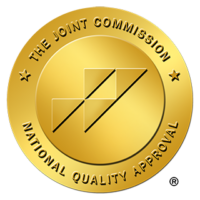Fentanyl Detox
Fentanyl is one of the most dangerous forms of synthetic opioids, often prescribed for acute pain situations. It is 50 times more potent than heroin and 100 times more potent than morphine, as noted by the U.S. Drug Enforcement Administration.
Since fentanyl is a habit-forming drug, a person using it is likely to develop serious withdrawal when trying to stop. For that reason, professional fentanyl detox treatment is often beneficial. In 2022, 73,838 people died from an overdose of synthetic opioids, most of which were fentanyl, according to the National Institute on Drug Abuse. However, for those who are struggling with dependence on this opioid, there is help.
With effective fentanyl addiction treatment, it may be possible to break that dependency and work toward recovery. However, you’ll need to first complete the fentanyl detox process.
Engage Wellness Acton supports those who are seeking fentanyl addiction treatment. Though we do not provide fentanyl detox treatment at our location, we do partner with community resources to help those who need it to enter the detox process safely.
What Is Fentanyl Detox?
Many people using fentanyl for extended periods or using more than prescribed need to go through the fentanyl detox process. This natural process allows the body to naturally rid itself of the substance while forcing the brain and body to function as they should without the substance.
As a result, users typically experience relatively intense withdrawal symptoms. To understand detox, you must consider how fentanyl works in the brain.
Use of fentanyl, such as for pain relief, can trigger the opioid receptors in the brain, which creates the “feel good high” many people experience. That positive sensation encourages the brain to continue to seek out that substance, creating dependence. When you don’t get the substance, the onset of withdrawal symptoms is common, as the brain wants that good feeling. That’s exactly what has to happen during detox. By detoxing, your body goes through the process of re-learning it doesn’t need fentanyl.
What Happens in Fentanyl Detox?
For many people who wish to overcome fentanyl use disorder, it is critical to work through detox treatment first. There are three significant steps to the fentanyl detox process:
- Intake: During this initial phase, a licensed medical professional will provide a thorough exam, gather family and personal medical history, and discuss mental health needs. A psychiatric exam may also be necessary.
- Detoxification: This is the more significant portion of detox involving the body’s natural process of flushing the substance from it. Detox takes time to occur and is when most withdrawal symptoms will take place. Detox can last from 12 to 48 hours at the highest intensity with lingering symptoms that can continue for up to 20 days, according to the National Library of Medicine resources.
- Post-detoxification: After those first few days, the remaining week or longer is a period of healing and stabilization where physical and mental health needs are met. Symptoms from fentanyl detox typically improve over this period.
The Detox Process
Before you can enter formal fentanyl addiction treatment, your body needs to work through the detox process. It is often beneficial for a person to live within a treatment center that offers specialized fentanyl detox during this period. Here is what you can expect.
Potential Intense Symptoms
For some people who have used fentanyl for a long period of time or those who consume large doses of the drug, the risk of more intense and sometimes life-threatening conditions can occur.
This may include:
- Tachycardia, a fast heart rate
- Bone and muscle pain
- Increased body temperature
- Hypertension, high blood pressure
Those who are using fentanyl as a component of chronic pain management may also see a significant increase in intense pain as a result of not having access. Pain management support is often necessary.


Types of Fentanyl Detox
There are two main types of fentanyl detox treatment. Inpatient treatment, which occurs within a licensed treatment facility, provides care around the clock, offering a safe environment with medical support. The second form of fentanyl detox treatment is outpatient, which enables a person to get care during the day most days of the week and then come home to a drug-free environment at night. Here’s more insight into which type of detox may be best for you.
Finding the Right Fentanyl Detox Facility for You
For many people who have used fentanyl, the detoxification process is a necessary and beneficial step to ridding the body of the substance. In a formal fentanyl detox treatment program, withdrawal symptoms can be better managed, and a person may be able to start counseling right away, allowing them to move forward with their care sooner.
Engage Wellness Acton does not offer formal fentanyl detox treatment at our location. Instead, we utilize a third-party provider for the fentanyl detox process and then provide the ongoing and necessary addiction treatment programs after this initial phase.
Contact Engage Wellness Acton today for communication and support as you embark on the fentanyl addiction treatment process.











